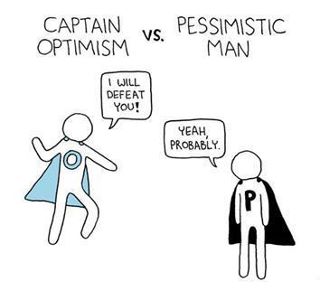We all have voices in our heads. They can sound like parents, partners, teachers, any other influential person in our upbringing. They can also be our own thoughts and beliefs about ourselves and the world. You can hear your narrator if you listen close to your responses to people, events or your own choices.

If you hear “That was stupid!” in an angry, condescending voice when you make a choice. That is your narrator. The should of, could of, ought to and other negative commentary. That is your narrator. A popular narrator is a parent that has strong opinions, we might even use their voice “Nice girls don’t…” or “Nobody likes…” or “You’re disgusting!” or “See, nothing good happens…”.
We usually install this narrator voice unconsciously and over time. As adults, we can be more conscious about what we allow our brains to tell us. We can deny the negative and let in more positive. We can shut down the nagging, whining, berating, hateful voice that hurts and welcome the warm, kind, accepting new relater.

We can CHOOSE our narrator
Replacing or even just renegotiating the narrator takes some conscious work. First, we really need to start listening to how we talk to ourselves. Yes, everyone has a narrator, a voice that tells our story perspective in our head. It has a lot of commentary about what goes on. Listen and pay attention to your thoughts.
TRY FREE WRITING:
- Sit down with some paper and write about something that happened that day
- Write your thought and how you are thinking about it now.
- Review it, try to be objective.
- Look for the negatives. There might a lot or hard to distinguish. “He just hates me.” “I don’t deserve” ” I’m too stupid”.
- You also spot life views “everyone is mean to me” “work is dumb” “I hate this!”
- Look for alternative to those negatives to replace.
Choosing the positives replacements is harder than it sounds. You have to change your perspective. Look at things differently. Do they “hate” you or perhaps just distracted, upset, or hurt? Are you really dumb/stupid or just need some help or do a little research to understand something? One incident does not equal global reality. Find a new way to say those things to yourself. Catch your negatives and practice replacing.
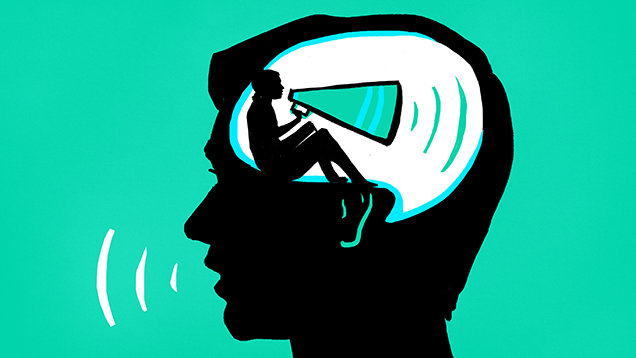
Change the voice to someone kind, patient and integrative with your personality. It’s important to find a voice that coincides with who you are; similar to you, accepting, loving and understanding, like a best friend!
Your narrator can sound like your hero, someone you look up, a personal “cheerleader.” That is who you need in your head. You can relate your new narrator to someone who had your back, supported you and loved you. It could be the same parent who is judgmental, just choose those good things and leave out the bad. Just like a “bad apple” those negatives do not have to ruin the whole batch.
Choosing your narrator takes time and conscious effort. Give yourself the space and time to do the work. The narrator was not formed in a week, but years and with layers. It takes a while to catch your negatives and automatically replace them, until they stop showing up altogether.

 GRATITUDE
GRATITUDE BEAUTY
BEAUTY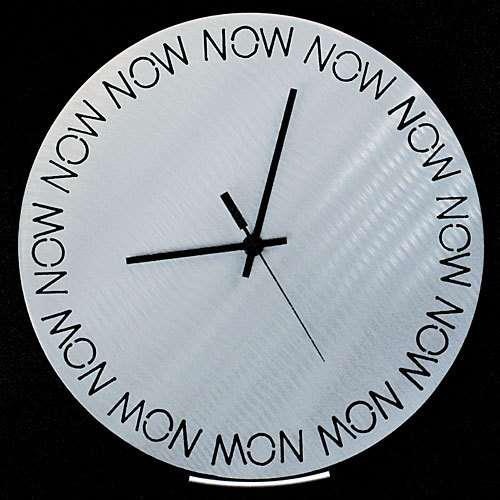
 The first is
The first is I have read a few articles recently about body satisfaction. One was on Ravishly.com about a woman who said she was happier “fat.” Which she means is her focus was on her family and her interests rather than her appearance. Her main point was thin does not equal happy. Happy = happy regardless of your size.
I have read a few articles recently about body satisfaction. One was on Ravishly.com about a woman who said she was happier “fat.” Which she means is her focus was on her family and her interests rather than her appearance. Her main point was thin does not equal happy. Happy = happy regardless of your size.
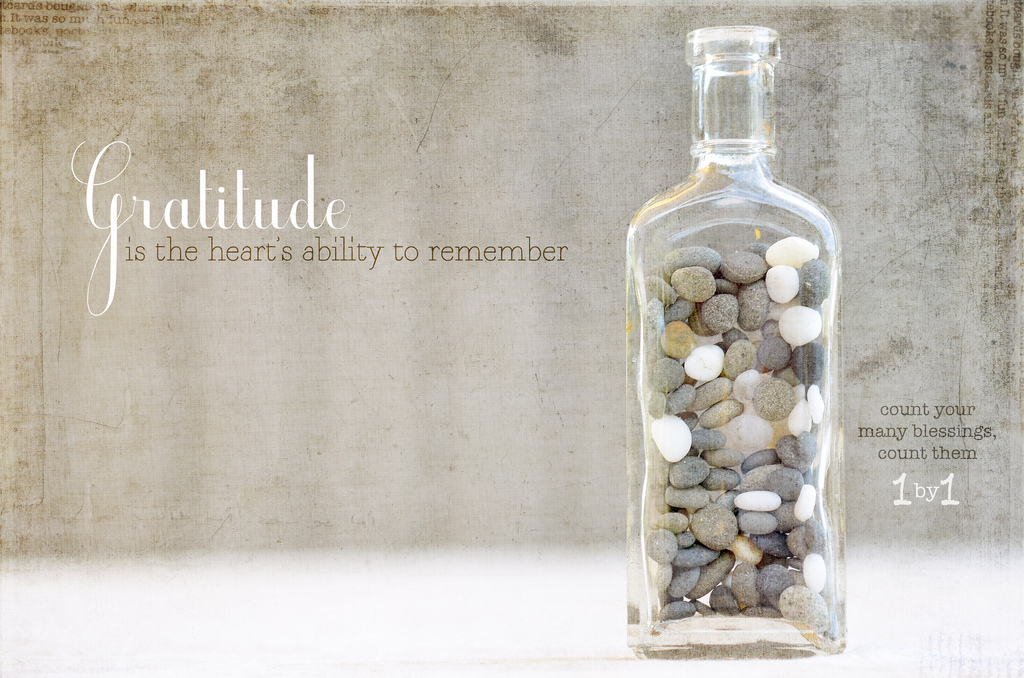
 TRY THIS
TRY THIS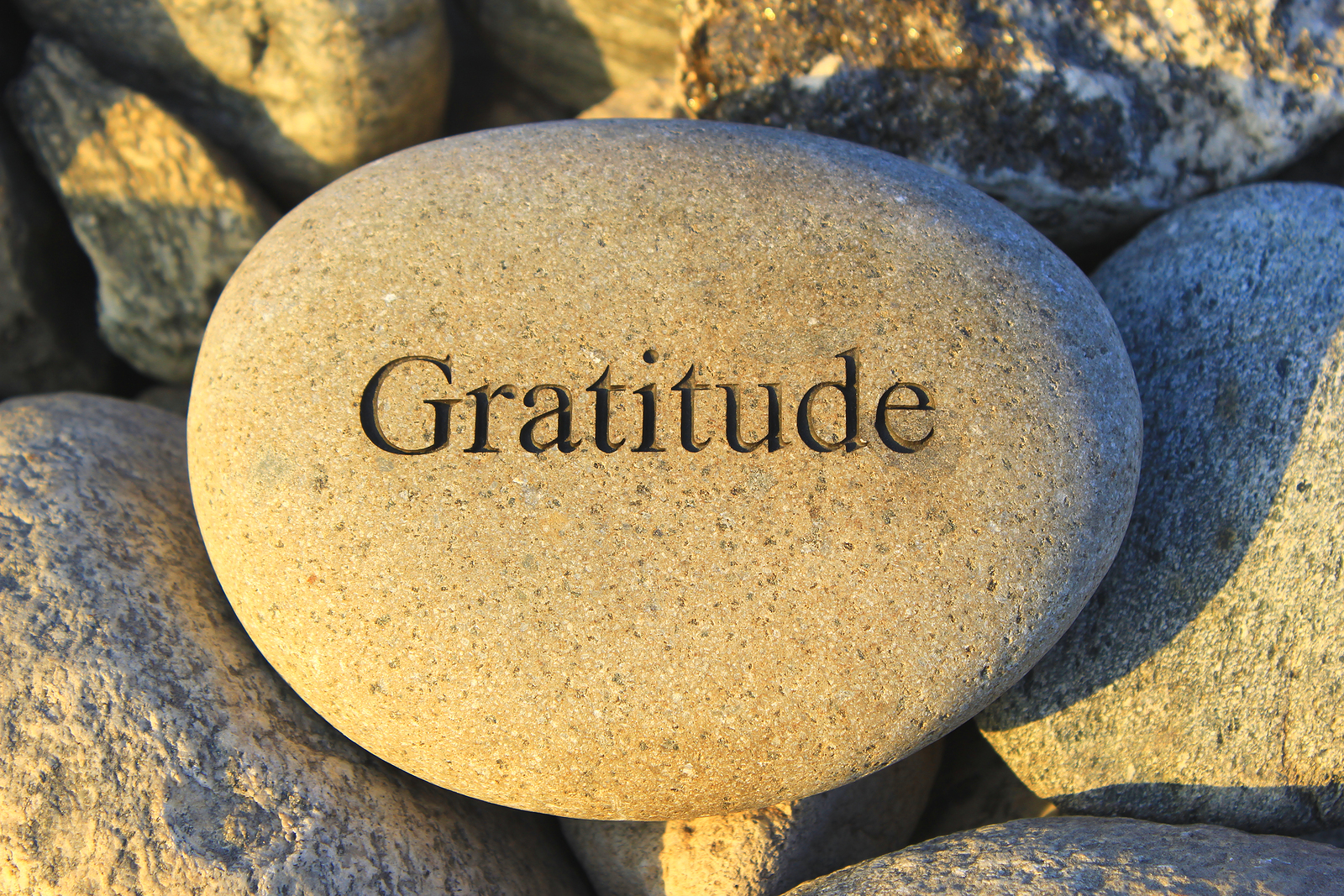
 Grief is the emotional process one goes through when there are changes in life. We have to grieve what we lose when we change. This can be simple, like moving from Elementary to Junior High. You still have your friends (usually). It is just an adjustment to more classes, teachers, lack of recess. It doesn’t really seem like grief, but it is. You miss things you are not experiencing anymore. The new things can consume you and make the process easier. It could also be a major adjustment, like a family member dying, a new baby, or getting married. We grieve the loss of singledom or coupledom when our family grows.
Grief is the emotional process one goes through when there are changes in life. We have to grieve what we lose when we change. This can be simple, like moving from Elementary to Junior High. You still have your friends (usually). It is just an adjustment to more classes, teachers, lack of recess. It doesn’t really seem like grief, but it is. You miss things you are not experiencing anymore. The new things can consume you and make the process easier. It could also be a major adjustment, like a family member dying, a new baby, or getting married. We grieve the loss of singledom or coupledom when our family grows. family, or friends. What really needs to happen is permission. Give yourself permission to have ALL those feelings. Whatever comes with grief, allow it. Feel sadness and cry. Feel angry and yell or punch a pillow.
family, or friends. What really needs to happen is permission. Give yourself permission to have ALL those feelings. Whatever comes with grief, allow it. Feel sadness and cry. Feel angry and yell or punch a pillow. 

